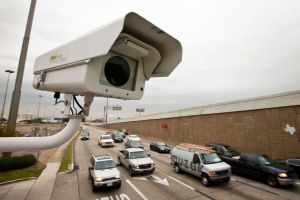
Source: Houston Chronicle/Hearst Newspapers via Getty Images / Getty
Civil Traffic Cameras Should Be Banned
You know those civil traffic cameras we see at intersections in cities?
Well, I think they are just day ruiners and that they are more of a problem than a solution for everyone.
Civil traffic cameras that issue tickets pose the ‘someones watching you’ or the ‘I hope i am not doing anything wrong’ feeling on the road and I don’t think that is comfortable for anyone.
Even though the purpose of civil traffic cameras are to capture violations like running red lights or speeding, they also lead to unreliable fines and penalties ON THE REGULAR.
The threat of receiving tickets when going on your daily commute or just going to a friends house from these cameras are just uncalled for.
Here are 17 reasons from bancams.com on why civil traffic cameras should be banned.
1. Burden on the innocent: Misidentification
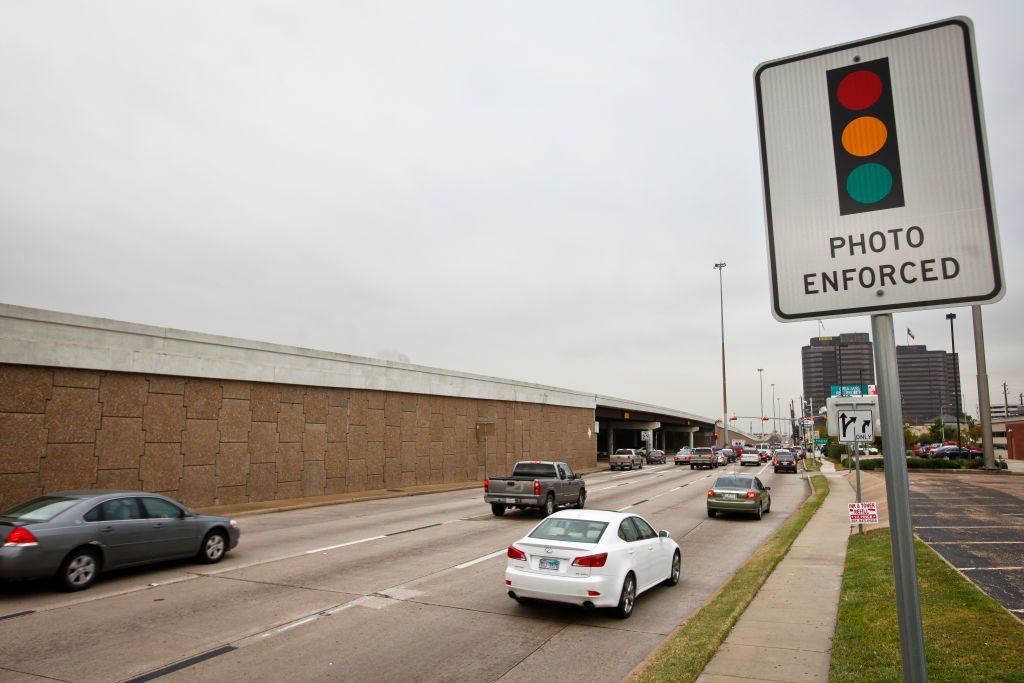 Source:Getty
Source:Getty
1 in 4 tickets are issued to the wrong person.
2. Burden on the Innocent: Equipment Malfunctions
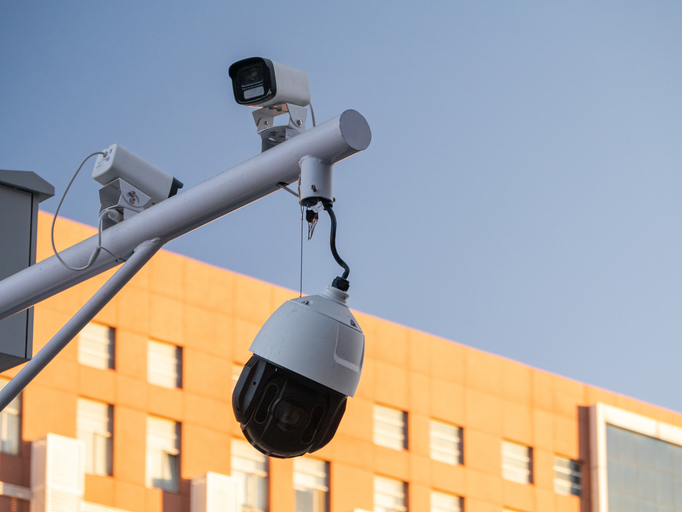 Source:Getty
Source:Getty
No one knows if all of the components of a photo system are working properly at any given moment, or if equipment has started to malfunction intermittently. Equipment vendors refuse to publish their equipment reliability and error rates.
3. Even when you win, you lose!
 Source:Getty
Source:Getty
Every time a driver receives a citation from a traffic camera, they are faced with the decision to take time off work to fight the ticket, or to just pay the fine.
4. Leaves Motorists Defenseless
 Source:Getty
Source:Getty
Motorists who receive photo tickets are at a severe disadvantage to make a defense due to the weeks or months that may lapse before a driver is served with a citation.
5. Less Safe
 Source:Getty
Source:Getty
Multiple studies show an INCREASE of accidents with red light and speed cameras.
6. Lack of Audit and Oversight
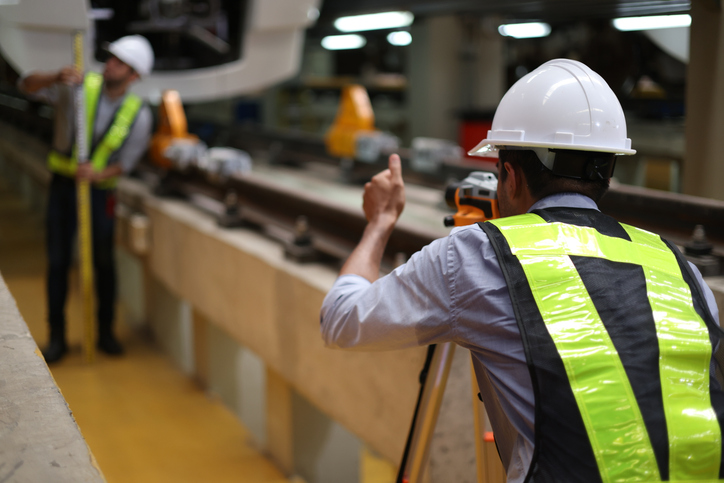 Source:Getty
Source:Getty
There is no stated maintenance or audit program by any government authority.
7. Uses our money to feed out of state Corporations
 Source:Getty
Source:Getty
The two camera vendors that operate in Washington, Redflex (from Australia) and American Traffic Solutions (from Arizona), receive an average of 50% of the money that is generated by the cameras.
8. Solutions to problems that don’t exist
 Source:Getty
Source:Getty
There have been placement of cameras where there are not problems.
9. Conflict of Interest
 Source:Getty
Source:Getty
There is a large group of people who are pro civil traffic cameras and there is a large group of people that are anti civil traffic cameras.
10. Denial of Due Process
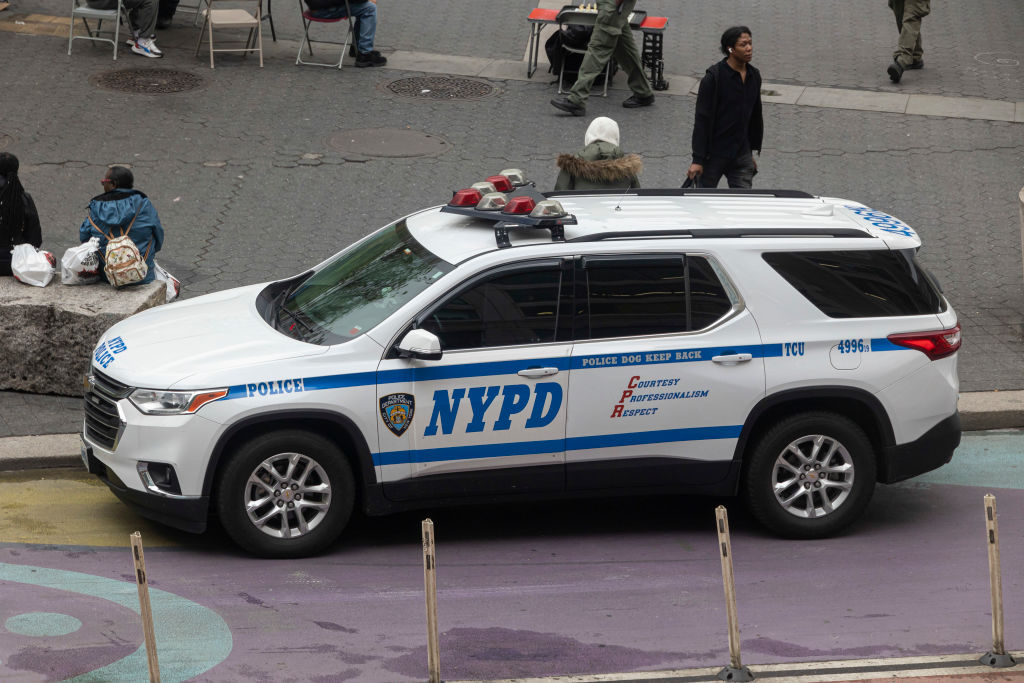 Source:Getty
Source:Getty
The Sixth Amendment’s Confrontation Clause gives the accused the right to be confronted by witnesses against them. With cameras, the driver is never confronted by a police officer ticketing him.
11. Photo Enforcement Vendors Are Not Trustworthy
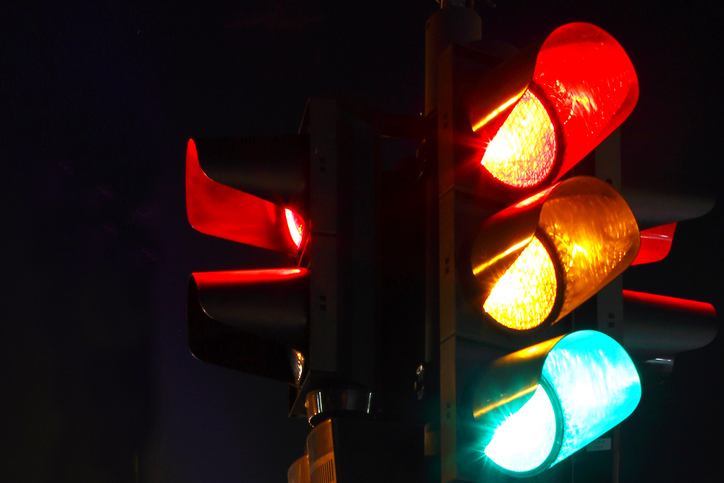 Source:Getty
Source:Getty
Arizona Secretary of State, Jan Brewer, confirmed that Redflex documents used in court to convict motorists of speeding in Lafayette, Louisiana had been falsified.
12. Invasion of Privacy
 Source:Getty
Source:Getty
The cameras are high-resolution video devices that run 24 hours a day. According to officer King with Arizona DPS, “We can just about zoom in and see stuff on the dash.”
13. Affects Consumer Spending and Tourism
 Source:Getty
Source:Getty
Nationwide, cities have responded to threats from locals and out of towners who have vowed to stop shopping in areas with photo enforcement by removing equipment.
14. Criminal Activity Has Become a Civil Matter, Not a Crime
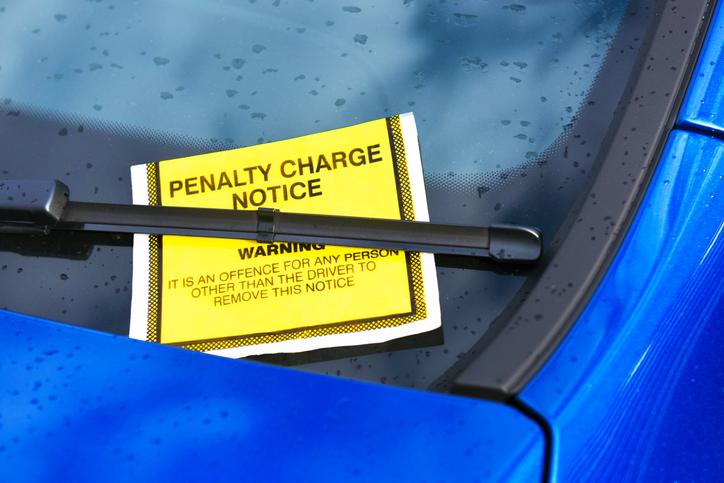 Source:Getty
Source:Getty
Local governments have skirted constitutional protections by classifying speed camera tickets as civil, not criminal violations.
15. Lucrative Photo Enforcement Favored Over Engineering
 Source:Getty
Source:Getty
Cities rarely conduct engineering studies to determine why a particular intersection experiences more accidents. Officials incorrectly assume that bad drivers flock to these intersections and that their behavior can be cured with the threat of tickets received weeks after the infraction.
16. Doesn’t remove any immediate threat to citizens like drunks, reckless drivers, or speeders.
 Source:Getty
Source:Getty
All drivers appear sober if given a civil traffic camera ticket unless proven otherwise.
17. Creates distrust and animosity for local officials, law enforcement departments, and makes a mockery of our judicial system.
 Source:Getty
Source:Getty
Not all automated systems work well.















